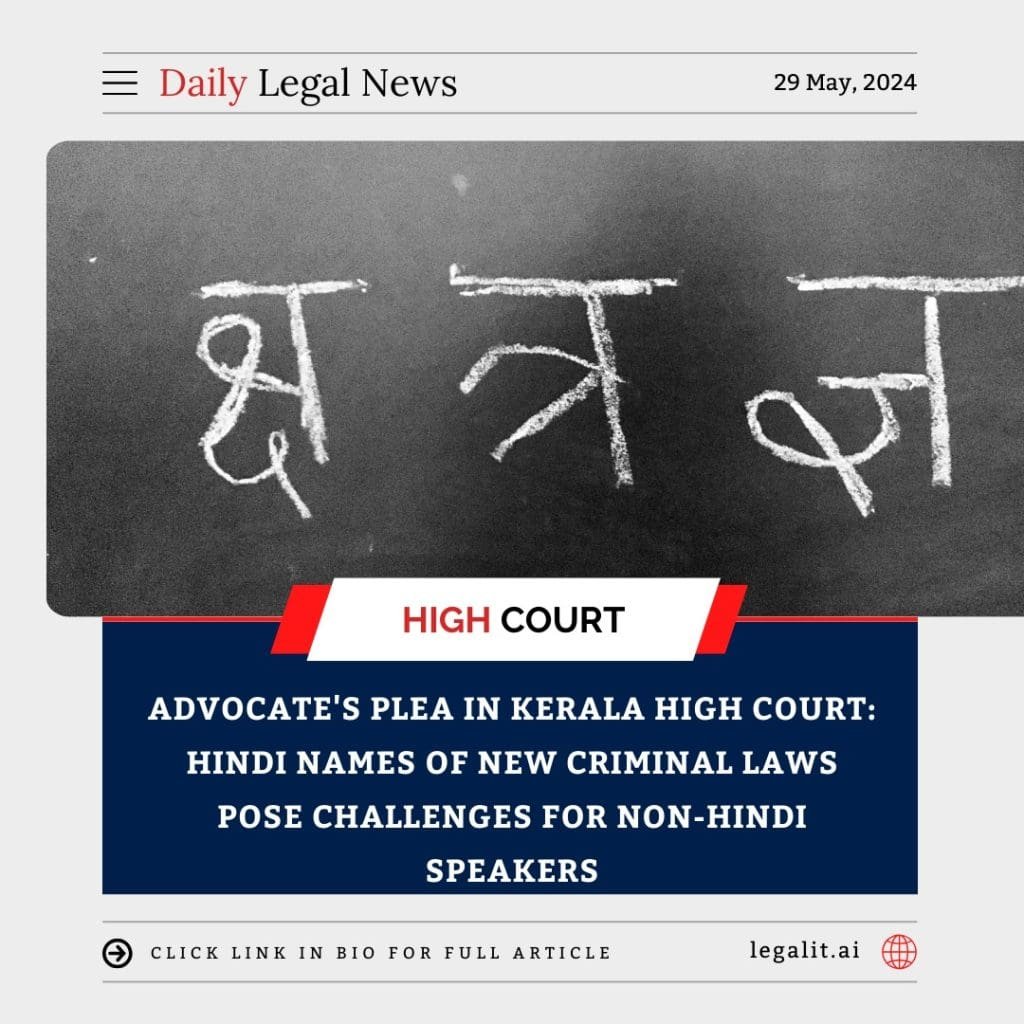
Background and Concerns
A recent plea by an advocate in the Kerala High Court has raised significant concerns regarding the imposition of Hindi in the names of newly proposed criminal laws. The plea argues that the Hindi names of these laws create difficulties for non-Hindi speakers, posing a barrier to understanding and engagement with the legal framework.
The Issue
The Central government has introduced three new bills aimed at overhauling the existing criminal laws. These are:
- Bharatiya Nyaya Sanhita (to replace the Indian Penal Code)
- Bharatiya Nagarik Suraksha Sanhita (to replace the Code of Criminal Procedure)
- Bharatiya Sakshya Adhiniyam (to replace the Indian Evidence Act)
These Hindi-titled bills have been criticized for being exclusionary and unconstitutional. Legal experts and politicians from non-Hindi speaking states argue that this move undermines India’s linguistic diversity and violates Article 348 of the Constitution, which mandates that all acts passed by Parliament should be in the English language【26†source】【27†source】.
Reactions and Legal Implications
The plea in the Kerala High Court reflects broader discontent across non-Hindi speaking regions. Tamil Nadu Chief Minister MK Stalin has been particularly vocal, describing the move as “linguistic imperialism” and an affront to India’s unity. Stalin’s statements resonate with historical anti-Hindi sentiments in Tamil Nadu, where efforts to impose Hindi have historically met with strong resistance【28†source】【29†source】.
Legal professionals, including Senior Advocate P Wilson and former Union Home Minister P Chidambaram, have pointed out that the exclusive use of Hindi in the titles of these bills is not only unconstitutional but also impractical. They argue that it complicates legal proceedings for non-Hindi speakers and imposes unnecessary burdens on legal practitioners and the general public who must adapt to these changes【26†source】【28†source】.
Conclusion
The Kerala High Court’s consideration of this plea will be closely watched, as it addresses a crucial issue of linguistic inclusivity in India’s legal system. The outcome could set a precedent for how language is used in official legislation and may influence future policy decisions regarding the use of regional languages in legal and governmental processes.